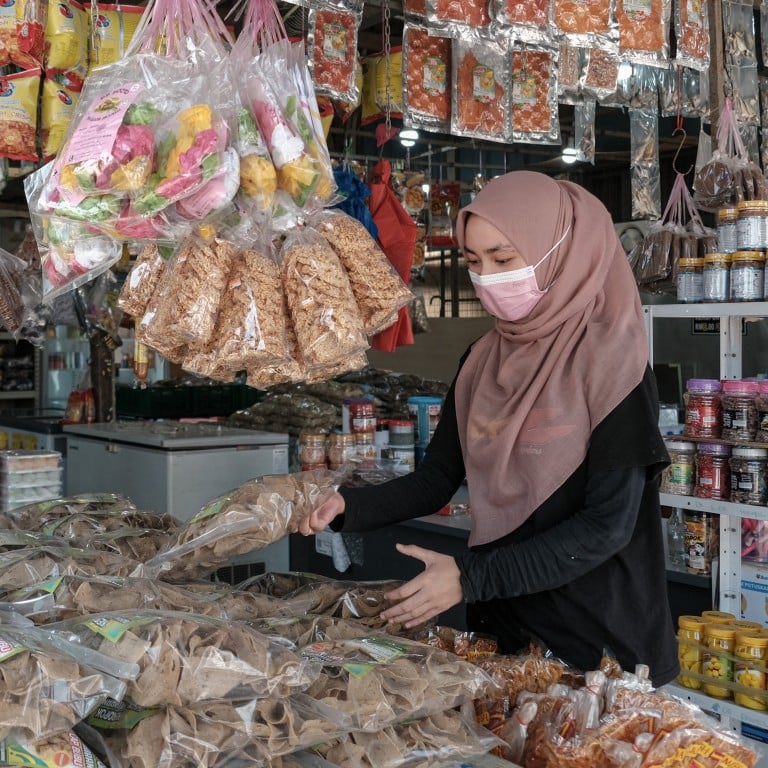
Malaysians feel the pinch as the ‘shringgit’ returns – and there’s no quick fix for PM Anwar
- The currency last month reached a 26-year low, shaking markets and rattling ordinary people as the prices of daily goods surge
- Analysts blame structural problems and say PM Anwar needs to make long-term economic reforms – and find the political support for the measures
For the last 20 years, the 75-year-old has diligently arrived at the crack of dawn to set up his stall on the city’s outskirts selling gardening goods.
But business has never been this bad, he said. And it’s not just him – all the stallholders at the open-air market in the upscale Taman Tun Dr Ismail suburb are suffering.
“Just look around you … nobody has sold anything,” he told This Week in Asia.
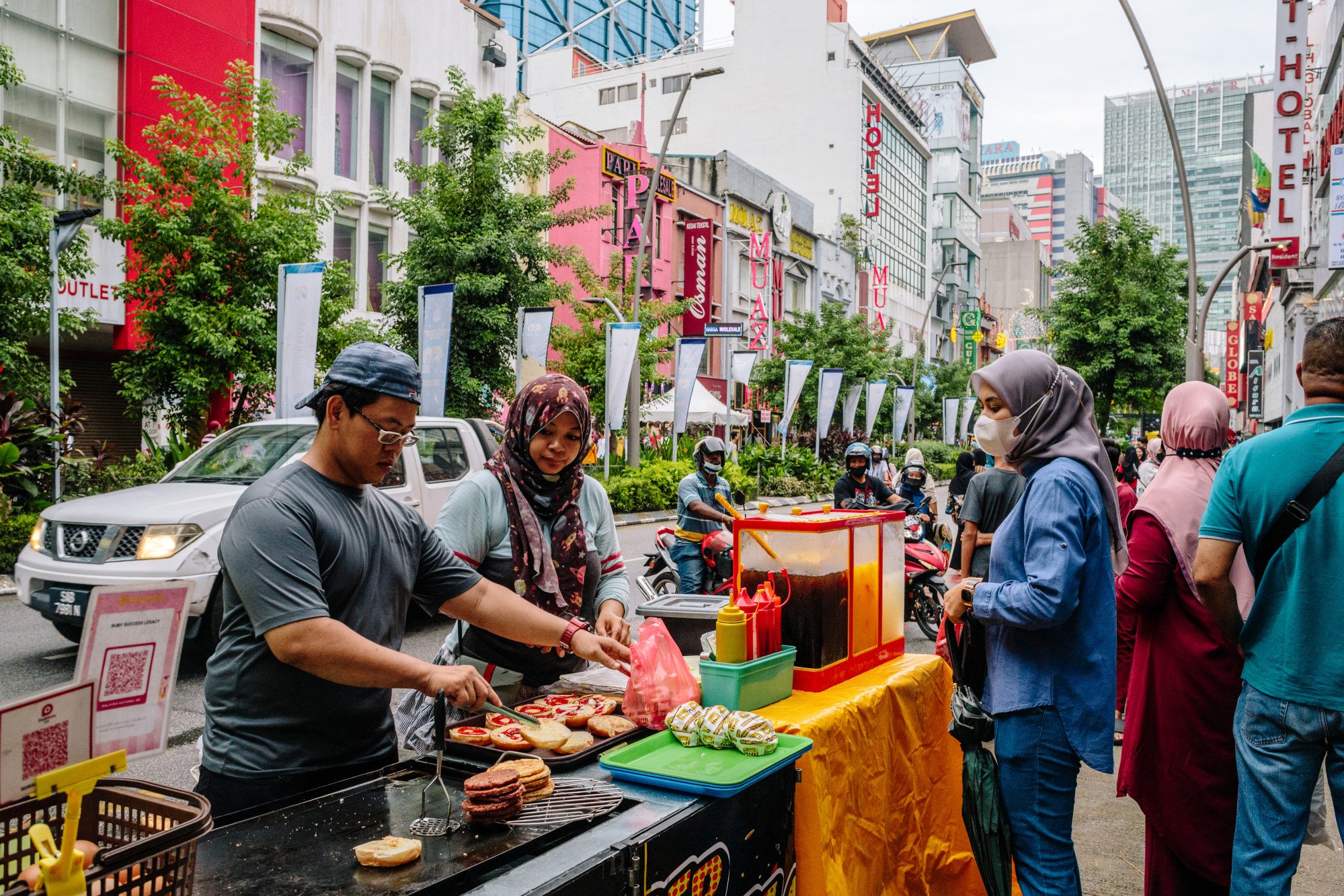
A 26-year low on February 20 shook markets and rattled the Malaysian public, as their currency slid to 4.7965 against the dollar, according to Bloomberg data, its weakest level since 4.8850 in January 1998, during the white heat of the Asian financial crisis.
“Back in 1997, it was not this bad,” recalled Al-Amin. “The big companies suffered, but we were mostly OK. Now, we’re really feeling it.”
Malaysians seeking lucrative Singapore jobs warned to be wary of scams
The crisis then made paupers of retail currency traders and forced corporations with high foreign exchange exposure, such as banks and import-reliant industries, to either fold or merge to avoid bankruptcy as currencies in the region wilted under hedge funds’ speculation, led by US billionaire investor George Soros.
This time, it is ordinary Malaysians being hit, as the cost of shopping surges with each ringgit depreciation, small businesses struggle to pay for imported goods, and the money in the pocket of retirees loses value.
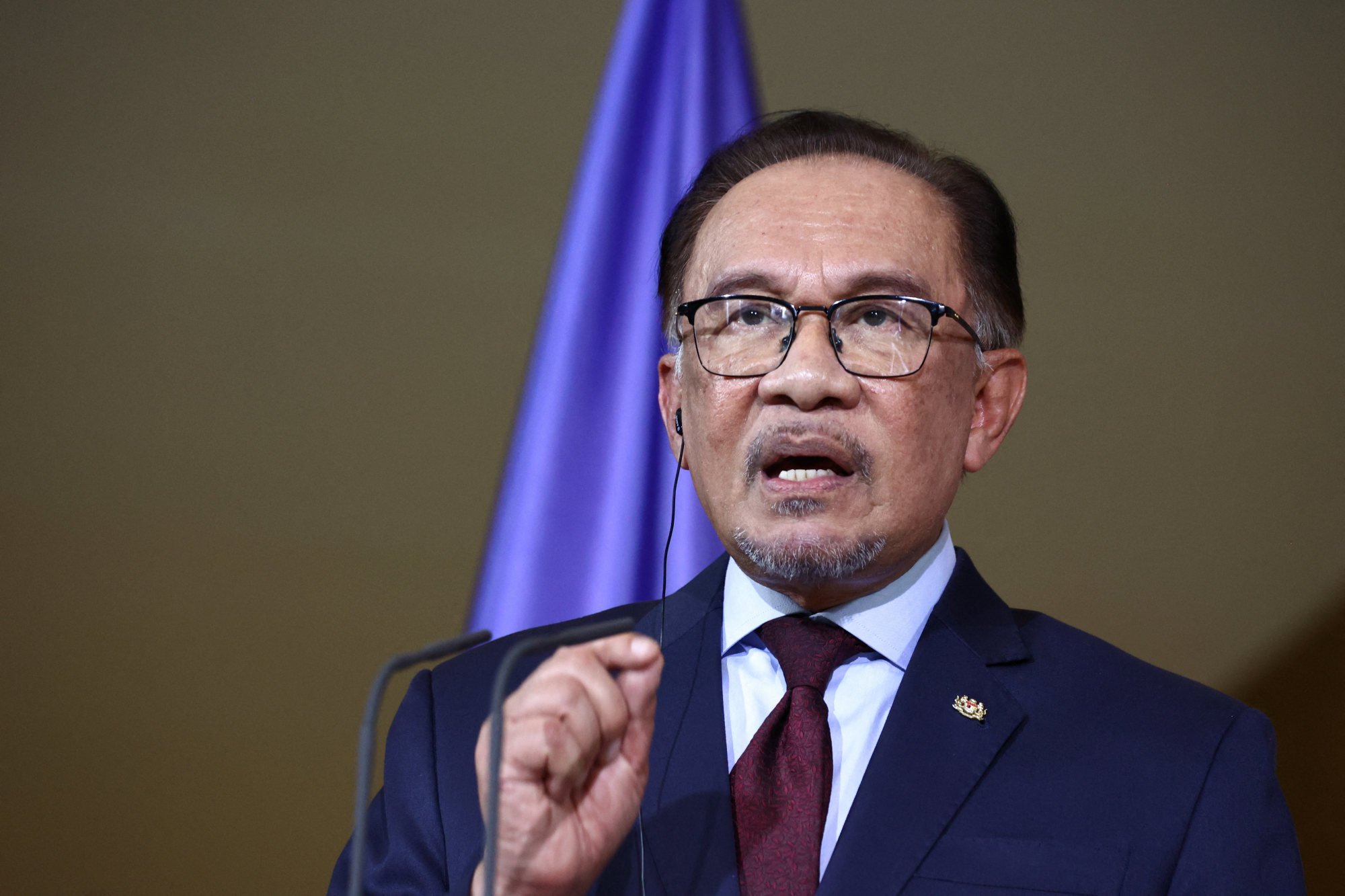
Structural problems
But experts say it is unfair to pin all the blame on the prime minister, pointing instead to structural problems, including protectionist policies favouring the Malay-Muslim majority, inconsistent educational policies and weak government delivery.
“The economic policy plans of previous administrations have not delivered the innovation, productivity improvements or entrepreneurial growth that was hoped for,” said Geoffrey Williams, an economist with the Malaysia University of Science and Technology.
Anwar acknowledged the ringgit’s performance was “concerning”, but stressed that foreign investors would not have signed off on a record 329.5 billion ringgit (US$70.3 billion) in investments for 2023 if the economy was also on the slide.
Malaysia’s Anwar says economy, investments booming despite ringgit slump
The government forecasts the economy will grow between 4 per cent and 5 per cent this year, driven by a rebound in exports – which surged 8.7 per cent annually in January. Meanwhile, inflation in Malaysia has receded to 1.6 per cent, currently the lowest in Asia.
The ringgit opened at 4.6980 against the US dollar in morning trade on Friday, maintaining its recovery momentum from the previous week.
But for those whose money is worth less at every dip, the long term is for other people to enjoy.
“The family and I used to go to Singapore every year on holiday, but we haven’t gone back in the past three or four years,” said a retiree, who gave his name as Zul.
“Just look at the exchange rate now. One can of Coke will end up costing me more than 4 ringgit (86 US cents) … that’s crazy.”
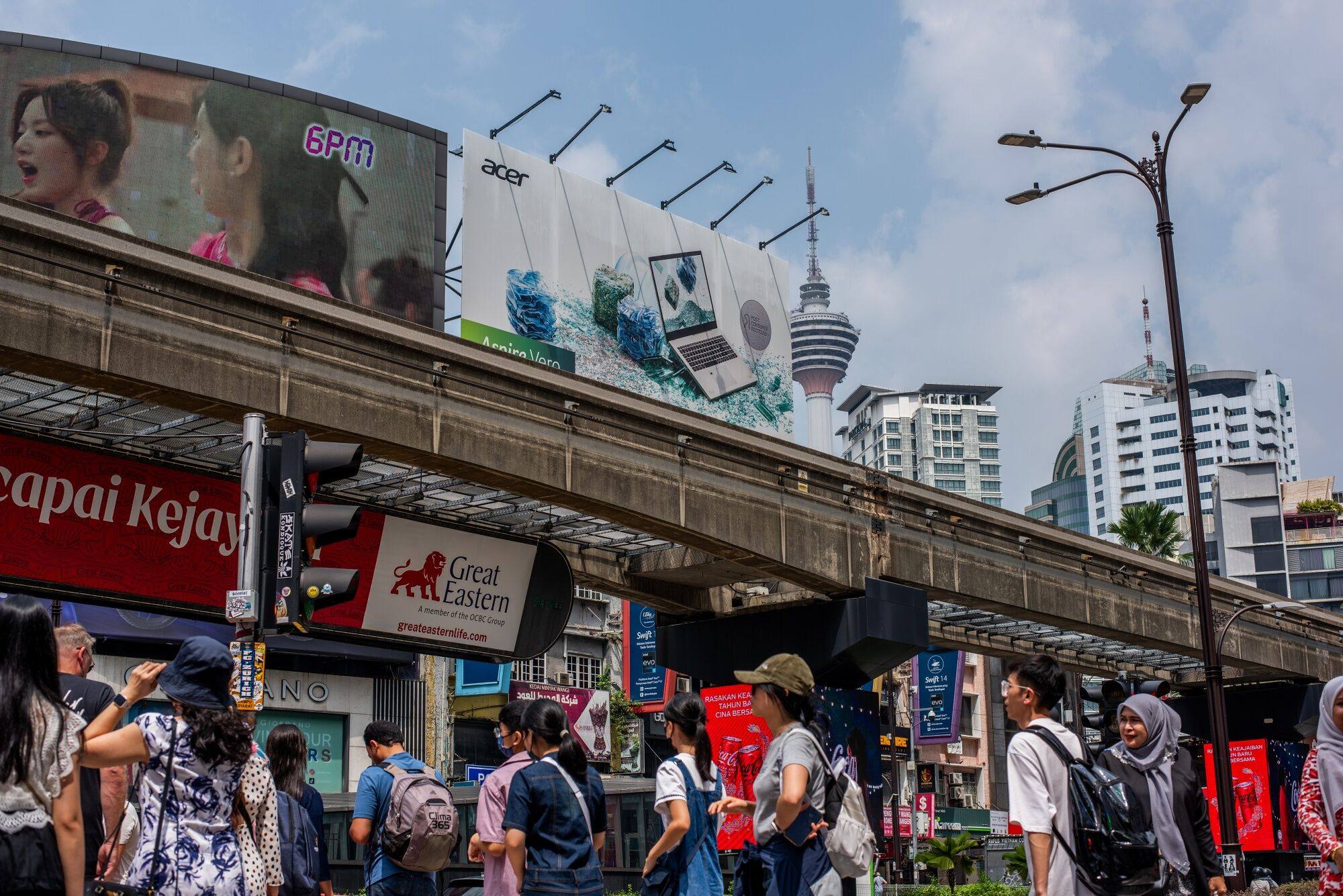
Subsidies, protectionism
There is no quick fix to change the ringgit’s fortunes, analysts say.
One temptation will be to raise the central bank’s key interest rate from its current level of 3 per cent – which would end up saddling households with higher loan repayments, said Cassey Lee, a senior fellow at the ISEAS-Yusof Ishak Institute.
“If you make the mistake of increasing the policy rate just to stabilise the ringgit, and it slows down the economy, because it affects consumption … then you are in trouble,” Lee said.
Instead, long-term reforms are needed, experts say, if the country’s productivity is to grow and ultimately nourish a stronger currency that reflects wider economic health.
“The government should spend more on capacity-building, such as on education, healthcare and infrastructure, that will improve the productive capacity of the country,” said Mohd Afzanizam Abdul Rashid, chief economist at Bank Muamalat.
Malaysia central bank urges firms, investors to help boost ‘undervalued’ ringgit
Malaysia’s central bank has also called on state-linked entities to repatriate foreign investment income and hold it in ringgit to shore up the currency.
The infamous ringgit peg – which fixed the exchange rate at 3.80 to the US dollar from 1998 to 2005 – helped negate the need for Malaysia to take on costly aid packages from the International Monetary Fund during the Asian financial crisis.
But the government also did little to capitalise on the buffer provided by the peg to deal with the economy’s shortcomings, such as a mandatory 30 per cent equity stake for the country’s bumiputra – a term for Malays that loosely translates to “sons of the soil” – in any foreign investment deal.
Foreign direct investments into Malaysia declined after hitting a record 8.8 per cent of GDP in 1992, according to World Bank data. Annual FDI levels have hovered at around 5 per cent since then.
The ringgit ranked second only to the Japanese yen as Asia’s worst-performing currency through 2022 and 2023.
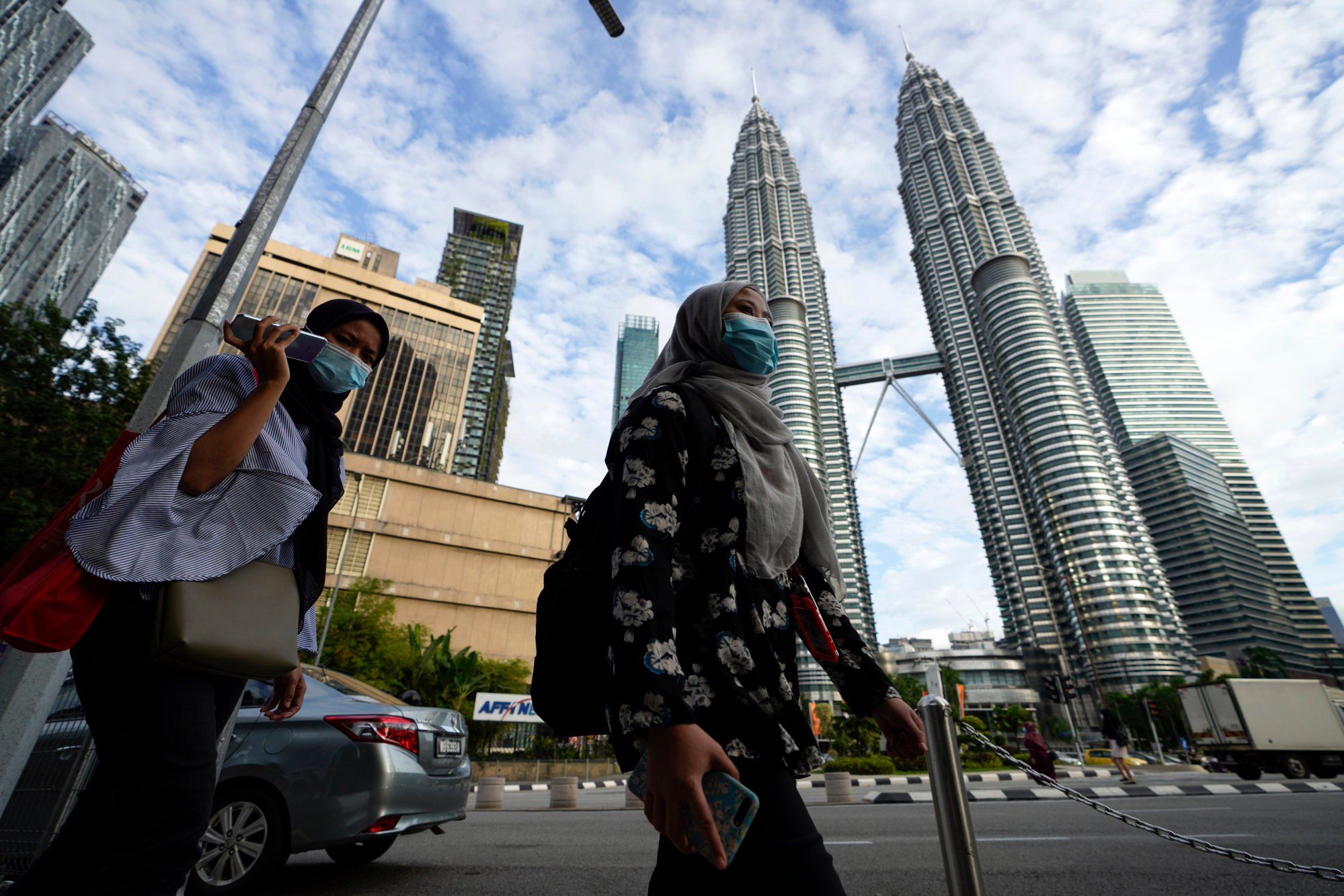
But Anwar faces political obstacles whichever way he turns to support the currency, experts warn.
Despite holding a parliamentary supermajority, he has struggled to draw support from the country’s Malay majority.
Former prime minister Muhyiddin Yassin, who leads the Malay nationalist Perikatan Nasional (PN) opposition bloc, said last week that Malaysians were “not confident in the ringgit”, opting instead to save in foreign currencies.
A conservative wave of support among Malay voters has given Muhyiddin’s opposition PN a strong hand in parliament.
Tussle over Malaysia’s sharia laws intensifies as Anwar backs contentious bill
The value of foreign currency deposits in Malaysia’s banking system hit 271.7 billion ringgit as of January this year, based on central bank data, a sharp spike from 154.1 billion ringgit in October 2020 when global trade and travel crawled to a near stop due to the pandemic.
That means economic reforms, such as broadening the tax base and slashing the country’s multibillion-dollar annual subsidy bill that could incur short-term pain for the public, are likely to be leapt on by Anwar’s rivals.
But inertia is not the answer.
“A weakened ringgit would mean higher prices for a Malaysian population dependent on imported foodstuffs and other daily-use items,” said Oh Ei Sun, a senior fellow at the Singapore Institute of International Affairs.
“This would impact Anwar’s popularity, as he would be perceived as not being able to handle the weakened ringgit.”

